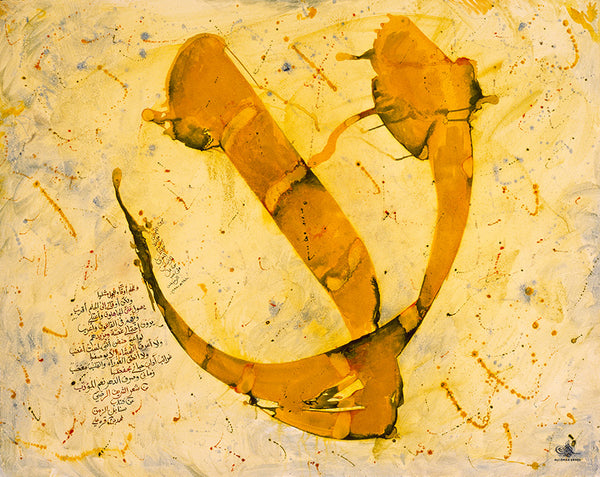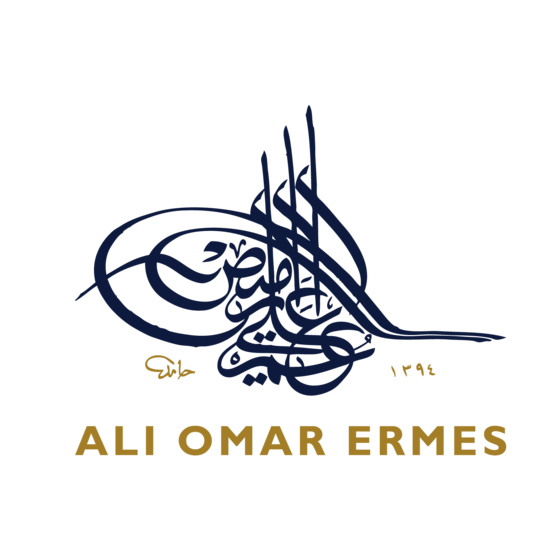BP: Treasures of the Earth - A Poetic Reflection on Environmental Responsibility
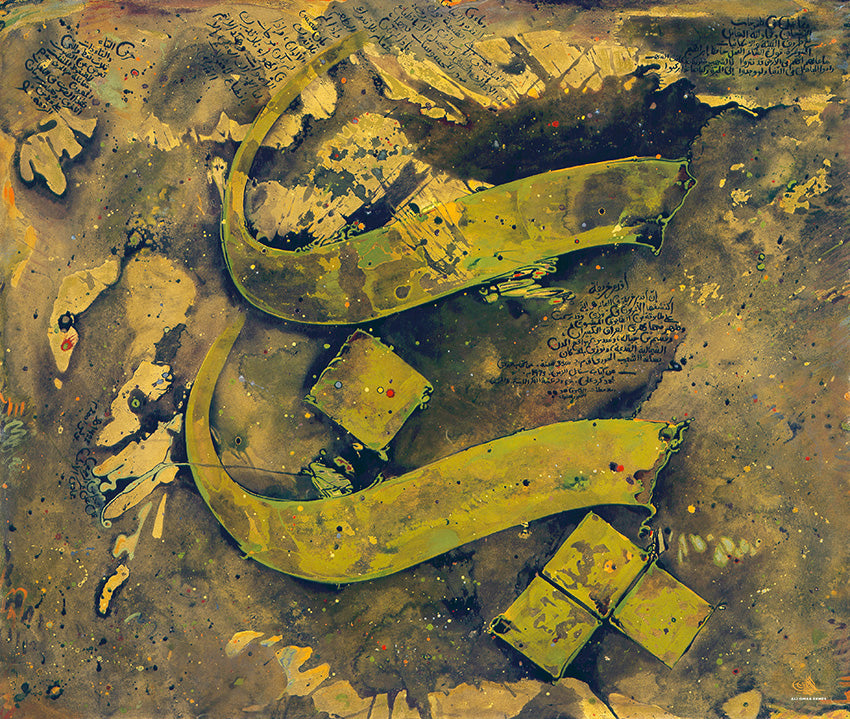
Nestled within the brushstrokes of this breathtaking artwork lies a powerful message about our planet and the role we play in preserving its beauty. Ali Omar Ermes has masterfully captured the essence of environmental responsibility, showcasing the natural wonders of our world as gifts from a higher power.
Featuring a stunning array of colors and textures, this 150cm x 120cm masterpiece is a true work of art. Painted with acrylic on paper, the original piece was created in 2002 and is now housed in the prestigious British Petroleum collection.
Through the power of poetry and art, Ali Omar Ermes has created a masterpiece that speaks to the very heart of our shared humanity and the need to protect the earth we call home. May it serve as a reminder of the beauty and fragility of our world, and the importance of preserving it for future generations.
Leave a comment
Also in ARTWORKS IN INSTITUTIONS & CORPORATIONS
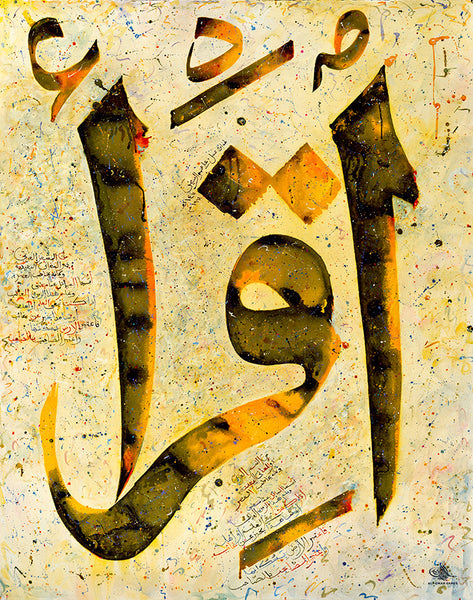
Iqraa: Read! The Message of Sala'a ibn Amr on Building a Just Society through Consultation and Dialogue
In Ali Omar Ermes' painting, 'Iqraa: Read!,' the inscription from a poem by Sala'a ibn Amr comments on the essential requirements for building a sound society. The poem likens the building of an equitable order to the construction of a house, emphasizing the importance of strong foundations and the use of the right materials. It also highlights the crucial role that consultation and dialogue play in fostering a healthy and harmonious society, warning against the dangers of allowing evil forces to gain dominance. Ermes' painting serves as a reminder of the crucial role that consultation, dialogue, and strong foundations play in building a healthy and harmonious society. By heeding the wisdom of Sala'a ibn Amr and working towards these goals, we can all contribute to the creation of a more equitable and just world.
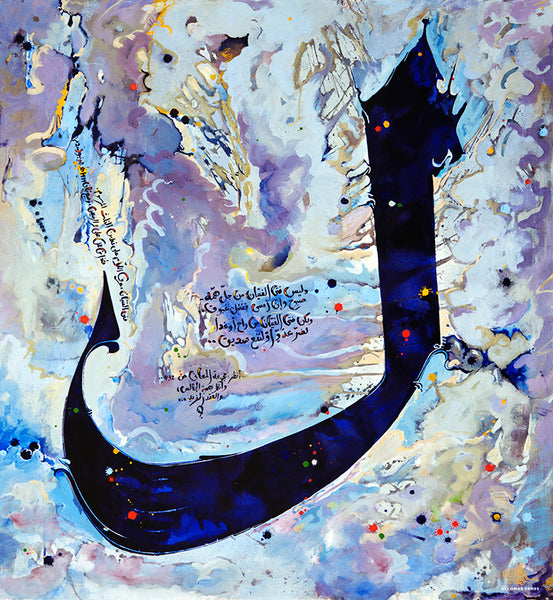
Fetal Fityan: The Dignity of Purpose - Ali Omar Ermes' Exploration of Ethics and Social Justice through the Letter Lamm
In Ali Omar Ermes' painting, the letter Lamm is depicted as solid and dominant against a backdrop of various challenges and conditions. The painting is inspired by a poem from the reference source 'Bahjat Al Majalis' by Ebni Abdel Birr Al Qurtobi, a renowned jurisprudent and literature scientist from the 10th century. The poem speaks of the qualities of a true dignified individual, stating that they are not concerned with satisfying their own whims and desires, but rather are constantly striving to be of benefit to humanity. Ermes' artwork serves as a reminder of the importance of upholding one's values and principles, even in the face of challenges and difficulties. By striving to be of benefit to others and standing up for what is right, we can embody the qualities of a true dignified individual as described in the poems of Al Qurtobi's 'Bahjat Al Majalis,' a timeless collection that serves as a valuable source of wisdom and guidance.
